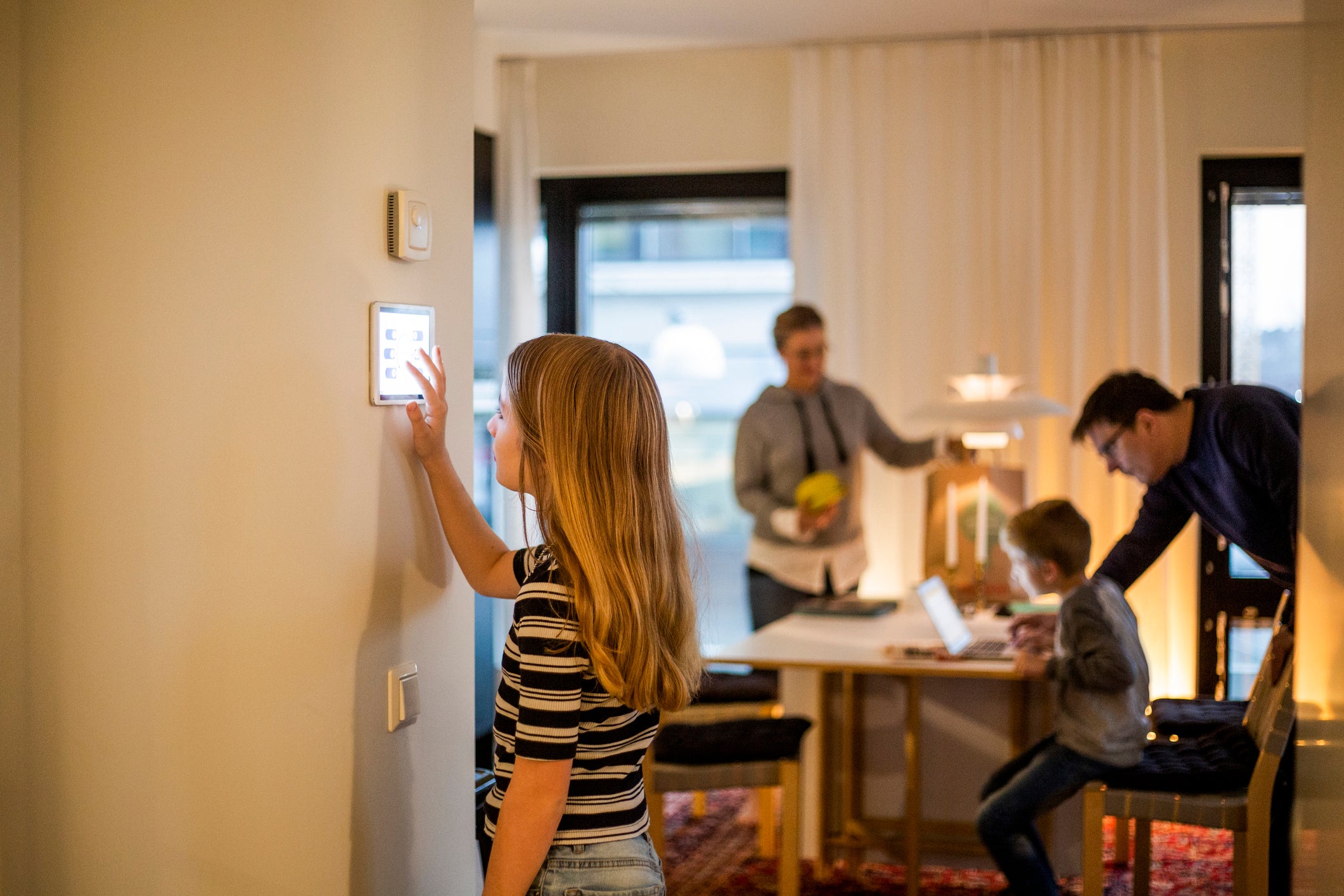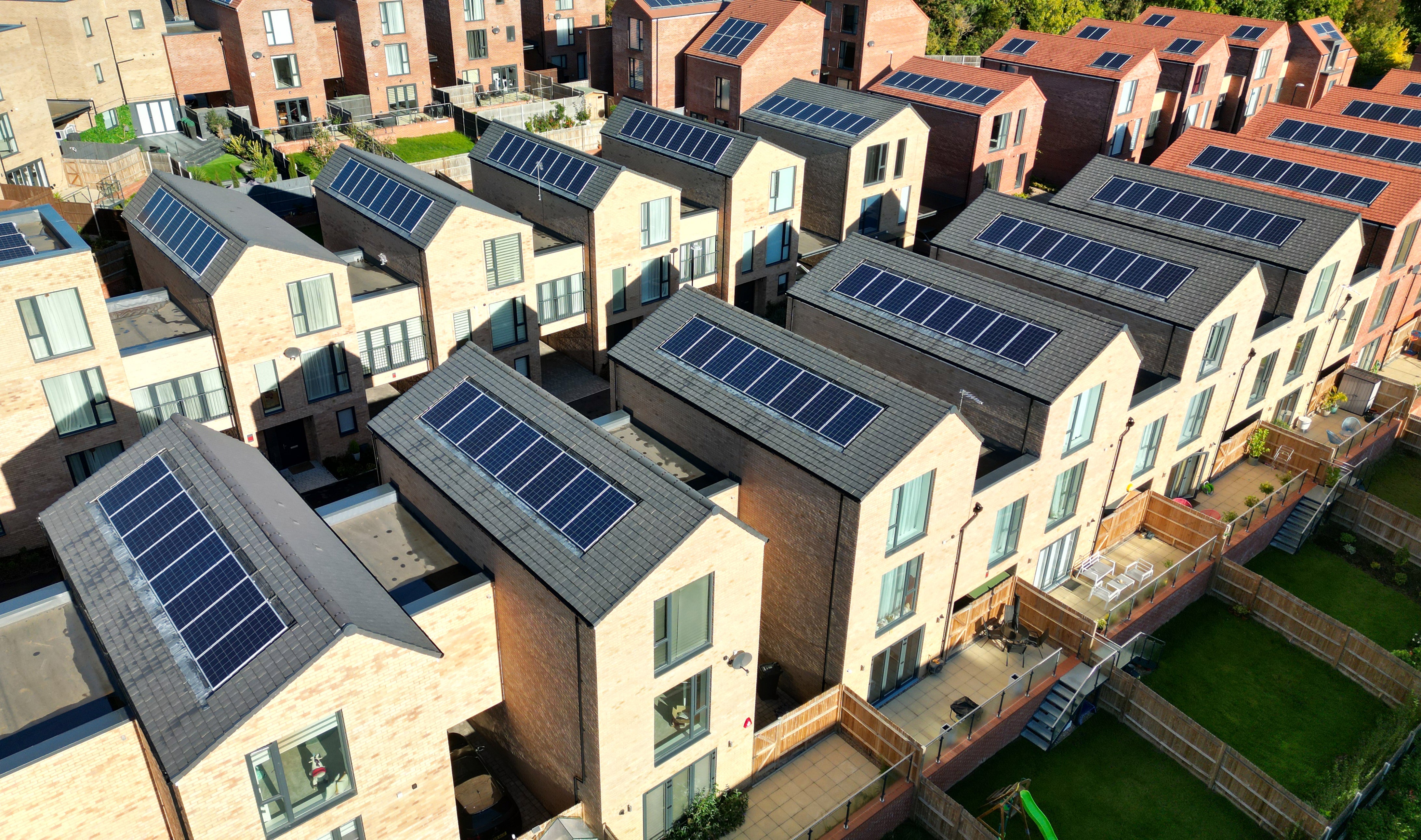How to harness renewable energy with smart home integration
Some 1.4 million UK homes now use solar energy to generate their electricity. This is helping many homeowners to save money on their electricity bills and even make money by selling excess solar energy back to the grid. Here, we explain how you can use panels, batteries, smart meters and smartphone apps to harness the power of renewables

What if you could lower your carbon footprint, slash your energy bills and even make money by storing and selling energy? It may sound like a far-fetched dream, but it’s fast becoming a reality as UK homeowners transition from powering their homes on fossil fuels to renewables.
Renewables are forms of energy generated from natural sources, for example the sun, wind, biomass and water, such as rivers and oceans. These are naturally replenished by nature, unlike fossil fuels, which must be extracted from the ground via drilling of oil and gas wells and mining. These processes release carbon dioxide into the atmosphere and create a blanket effect by trapping the sun’s heat and causing climate change.
The cost of using fossil fuels are also subject to volatility. A combination of increased demand for energy during and after the COVID-19 pandemic and supply issues following Russia’s invasion of Ukraine have caused energy bills to soar in the UK since 2021. This has prompted consumers and businesses to look for new cost-effective, reliable and environmentally friendly ways to power their homes and offices. But what are their options?
Harnessing the power of solar
Solar energy is the most popular form of renewable energy amongst UK consumers. A total of 1.4 million homes (4.9% of properties in the UK) now use solar panels to generate electricity. This involves using solar panels or photovoltaic cells to capture solar energy from the sun which is then converted into electricity or heated water. Panels can be installed onto roofs or other surfaces with sufficient exposure to the sun, though it doesn’t have to be sunny for them to work. Panels can still generate energy on cloudy days and any excess energy generated during daylight hours that you don’t use can be stored in batteries for use at a later date or be sold for a profit.

Making money from solar energy
Excess energy provides consumers with an opportunity to make money. This can be sold back to the national grid - an energy company in the UK that connects UK homes and businesses to the electricity they need. Homeowners using solar panels can sell this power through a Smart Export Guarantee Scheme. This provides you with a guaranteed fixed fee per unit of electricity you sell back to the grid over a fixed time period. For example, with E.ON Next’s ‘Next Export Premium Plus’ scheme, you’ll receive 40p per kWh of electricity you export on a 12-month fixed-term export tariff. Data from E.ON shows that homeowners that use their solar panels and battery storage could save £904 per year on their electricity bills.
Smart energy management systems
Energy is fast becoming a personalised, intelligent and automatic experience. According to the latest Gov.uk data from 2023, more than 32 million domestic smart meters are installed in the UK, compared to just 24.2 million in Q1 2021. Smart meters put you in control of your energy bills by communicating with your smart meter display to show you how much you’re spending in real time, meaning you can adjust your electricity or heating usage from your solar panels as you go. The meter also communicates with your energy supplier so you’re only charged for the energy you use, rather than an estimated amount based on previous usage.
Smart solar charging
If you’ve also made the switch to an electric vehicle (EV) it’s now possible to charge your car using your own renewable energy. EV drivers who also have E.ON Next solar panels and an E.ON Next EV charger can prioritise charging their car using renewable energy via the E.ON Next Home app. It also enables you to customise when your charging begins and schedule in charging for the most cost-effective time period.
Ready to power up your home with E.ON Next’s smart energy tech? Visit E.ON Next to learn more



